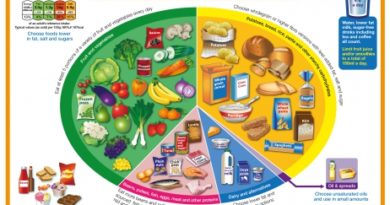Eating breakfast can cut heart attack risk – puh-lease!
Slade Simon @slade37 tweeted me this story and asked what I thought of it:
I replied: “Doesn’t add up. 27k men. 13% (3510) skippers. 23490 eaters. 171 skipper & 1356 eater attacks. 5% skipper rate vs 6% eater!”
I thought no more of it until I saw BBC health tweet their story.
And then opened the morning papers and saw more headlines “How eating breakfast can cut a man’s risk of heart attack.” Then I did a quick Google search on breakfast and heart disease in the past 24 hours and this story had been reported from Canada to Australia with everywhere in between. (Here’s the press release).
Oh bother I thought – there’s a need for a nonsense busting blog before starting the proper work for the day:
The study
This is the journal article. Unfortunately only the abstract is available on free view so I’ve spent $20 to get the full article.
The abstract summary tells us the following:
Methods and Results—Eating habits, including breakfast eating, were assessed in 1992 in 26 902 American men 45 to 82 years of age from the Health Professionals Follow-up Study who were free of cardiovascular disease and cancer. During 16 years of follow-up, 1527 incident CHD cases were diagnosed… Men who skipped breakfast had a 27% higher risk of CHD compared with men who did not (relative risk, 1.27; 95% confidence interval, 1.06–1.53)…
[CHD by the way is taken as non fatal heart attacks or fatal heart disease].
Conclusions—Eating breakfast was associated with significantly lower CHD risk in this cohort of male health professionals.
The full journal article gives the numbers as follows:
| Men |
26,902 |
| Incidents |
1,527 |
| Follow up years |
16 |
| Study started in year |
1992 |
| Total breakfast skippers |
3,386 |
| Total breakfast eaters |
23,516 |
| Incidents skippers |
171 |
| Incidents eaters |
1,356 |
| Incident rate skippers |
5.05% |
| Incident rate eaters |
5.77% |
| Person years skippers |
49,880 |
| Person years eaters |
338,074 |
| Per person year incident rate skippers |
0.34% |
| Per person year incident rate eaters |
0.40% |
(The raw numbers are in the article – I calculated the incident rates from these. Funnily enough, the study doesn’t report the incident rates that I show above).
The raw numbers tell us the following:
– The overall study incident rate for breakfast eaters was 5.77% vs 5.05% for breakfast skippers. If you want to use Relative Risk numbers (as these studies always do), the breakfast eaters had a 14% greater incidence of CHD events than the breakfast skippers for the duration of the study.
– The per year study incident rate for breakfast eaters was 0.4% vs 0.34% for breakfast skippers. If you want to use Relative Risk numbers (as these studies always do), the breakfast eaters had a 17% greater incidence of CHD events than the breakfast skippers in any one year of the study.
– The average follow-up period (person years/people in each group) was 14.73 for skippers and 14.37 for eaters, so the skippers were followed for a longer period of time on average.
– As ever in these studies the numbers are TINY! In a study of nearly 27,000 men, aged 45 to 82 (how many of the eighty year olds made it to the 16 year follow-up?!), there were 1,527 incidents in 16 years. That’s an overall incident rate of 5-6 in 100 across 16 years or about 1 in 300 in any one year. This will be so massively weighted towards the older people in the study that the ‘youngsters’ didn’t need to worry about breakfast or anything much.
Other facts from the raw data in the full article:
Table 1 of the article has the baseline characteristics of the breakfast eaters vs skippers.
| Eaters | Skippers | |
| Numbers |
23,516 |
3,386 |
| Age |
59.2 |
54.1 |
| Current smoker (%) |
5 |
15 |
| Drink alcohol (%) |
75 |
78 |
| Alcohol g/day |
9.8 |
13.5 |
| Work full time (%) |
71 |
76 |
| Married (%) |
91 |
86 |
| Physical activity (MET – h/wk) |
37.7 |
33.9 |
| TV watching >21 h/wk (%) |
10 |
13 |
| BMI (mean) |
25.6 |
26.3 |
The breakfast skippers were three times more likely to smoke. They were more likely to drink and drank over a third more than the breakfast eaters as grams per day. The skippers were less active and were 30% more likely to watch 21 or more hours of TV per week. In the context of stress as a heart disease risk, more skippers worked full time and fewer skippers were married (marriage has been shown to be particularly health beneficial for men). The only baseline characteristic in favour of breakfast skippers was that they were an average of 5 years younger.
Putting the raw data and the baseline data together…
The raw data tells us i) that the breakfast eaters had a 14% greater incidence of CHD events than the breakfast skippers for the duration of the study and ii) that the breakfast eaters had a 17% greater incidence of CHD events than the breakfast skippers in any one year of the study.
The baseline data tells us that age is the only factor to the ‘advantage’ of the skippers – everything else (smoking, drink, exercise, stress) is stacked against them. And yet Table 2 of the study jumps from the raw data and the baseline data to say that, when the data is adjusted for age, demographic factors and activity factors, breakfast skippers have a 27% greater risk than breakfast eaters. How? I mean really – how?!
If skippers are 14-17% ‘ahead’ to start with and then the adjustments for everything other than age should accentuate this differential even more, the only factor that can be having an impact here is age. Age must have neutralised the raw data advantage for the skippers, neutralised smoking/drinking/stress/exercise etc. But not just neutralised – age has overcome all of these to the extent that it swings everything 27% in the opposite direction.
I can only think of one conclusion from this – heart disease is so strongly associated with age that nothing else matters – not smoking, drinking, stress, marital status, activity levels and certainly not whether or not you used to skip breakfast 16 years earlier! (we’ll come back to that one).
Other factors to consider
1) This is association, not causation. Notwithstanding the fact that the raw data has the association the other way round, I would no more try to argue that eating breakfast increases the risk of heart disease than Leah Cahill (the study lead) should be arguing that eating breakfast reduces the risk of heart disease.
2) This is relative, not absolute risk. I can play the same game and say that – from the raw data – breakfast skippers have a 17% lower incidence of heart disease than breakfast eaters in any one year of the study. The absolute risk is 1 in 292 for breakfast skippers and 1 in 249 for breakfast eaters. Who cares?!
3) Please correct me if I’m wrong but I could see no evidence in the full paper that the follow-up included checks and/or adjustments for current breakfast eating or skipping pattern or how this might have changed over a long 16 year period. Indeed it would be quite difficult for the study to have done this – they would have ended up with four groups of people (more if they tried to follow changing patterns across 16 years). The minimum of four groups would have been – those who – when first asked in 1992:
– skipped breakfast and still do
– skipped breakfast at the first questionnaire in 1992 and don’t now
– ate breakfast and still do
– ate breakfast at the first questionnaire in 1992 and don’t now
We thus have not a clue if what has been observed after a 16 year follow up reflects 16 years’ worth of behaviour or if it merely measures what the participant did in the days to which the 1992 questionnaire referred.
4) Even if there is an association between breakfast skipping or breakfast eating and heart incidents, the breakfast habits are as likely a symptom of a lifestyle rather than a cause. In this study it would be plausible for the low percentage of smokers among breakfast eaters to be an indication that some skippers are starting the day with a cigarette rather than eggs Benedict. This would be unhealthy, but would the smoking instead of breakfast or the missing breakfast be the key factor?
A possible hypothesis for skipping breakfast impacting heart disease is that people would eat more later on in the day. a) this study is far from convincing that skipping breakfast is an issue and b) Table 1 shows that the daily calorie intake of the breakfast eaters is 1,954 per day and that of the breakfast skippers is 1,831 per day. So this cannot provide a plausible mechanism.
The bottom line
The headlines today scream Eating breakfast can cut a man’s risk of heart attack by a quarter . No it can’t! If men who don’t currently eat breakfast start eating breakfast they will not reduce their risk of a heart attack for all the reasons stated above. Other things being equal if all they do is start eating breakfast, especially if they eat the starchy breakfast recommended by our dear governments, they’ll merely get fat.
The researchers in this study will be very happy today – headlines across the world. The real losers are the media who fell for this nonsense, without looking at the numbers and the poor man in the street who might actually fall for this nonsense too.




Well done Zoe, as usual a blaster of a response.
Such is the order of the day embellishments on the thinnest of evidence.
People should be shot for such balderdash!
Ensures I keep sharing the cards & lifestyle education.
Love to you both R&G xx
My suspicion is that they got the results mixed up.
Smoking ages people. By the time smokers are my age (61) they look OLD. I cannot believe that such a small age difference between the groups would cancel out the effect of smoking.
It just doesn’t make any sense.
At best there may be some other variable that they have not controlled for.
Thank you Zoe!
On the subject of heart disease, on Daybreak this morning (29th July), a woman was being interviewed who was unfortunate enough to develop heart disease in her thirties, and was found to have a 99% blocked artery. She’d been suffering chest pains and arm pain for a while, but thought that it was because she wasn’t fit enough (she was already what I’d call a gym bunny)and pushed herself even harder. It wasn’t made clear how she eventually found out what the problem was, but she was fitted with a stent. She was a slim person, who ate what is still perceived as a healthy, balanced diet, and exercised regularly, so of course the point was that she was “unusual” in that she wasn’t overweight and unfit but had still got heart disease. To me, this howls that obesity and perceived lack of fitness are associations with heart disease, not causes, but this is never suggested. Why would a woman who is the complete antithesis of what we are told WILL cause heart disease become a sufferer herself? We were also told she wasn’t a smoker, and didn’t drink to excess. What wasn’t established was why she had developed heart disease at such a young age.
I thoroughly enjoyed your dissection of the breakfast nonsense, Zoe – when will they learn??!
As usual, Zoe, well done!
Thanks for the review, I’ve been wanting to look at this study myself.
In a Twitter, Facebook, Instagram world, even the news media doesn’t bother to check the veracity of their facts, just the trends — please. They take it on faith that these people know what they’re talking about. Besides, they are merely reporting what someone said. That’s only marginally irresponsible, right? I should know, I am in the media. I am also one of those people who have lost over 100 pounds in my lifetime.
It seems like we face an impossible task trying to convince people what is a healthy diet and lifestyle when the media are against us and just blatantly lie. Its lying or poor reporting. The best we can try to do is give people the information and lead by example. Unfortunately some people think because I keep my carbs low I am the loon.
Thanks for analyzing the study for us all. It sounded crazy when I first heard it. I appreciate your detailed breakdown of it.
But what if you eat red meat for breakfast? :-)
Pingback: Breakfast linked to 'healthy heart' | Mark's Daily Apple Health and Fitness Forum page
Why can’t scientists be imprisoned or fined for this kind of blatant falsification?
Thanks for the expose Zoe. Do you have any meaningful way to challenge the media ditectly? You said you were recently invited to comment on the Salford takeaway issue so you must be ‘connected’. Dr John Briffa has an occasional item in the Times. Do you have anything similar? The media seem to be largely believed. Do they (the media) believe what they write? Are they just reflecting the opinions of the ‘experts’ ? Gary Taubes managed to get a couple of ‘controversial’ articles on fat and sugar in the New York Times, so there must be scope for an alternative voice in the UK media. Maybe more networking needed?
Keep up the good work. I always appreciate your blogs, just wish you could write more!
Kind regards
Daft. Don’t these guys have any idea how silly they look, producing such LOUD pronunciations from such thin differences, and then back-to-front. Somebody must have motivated them.